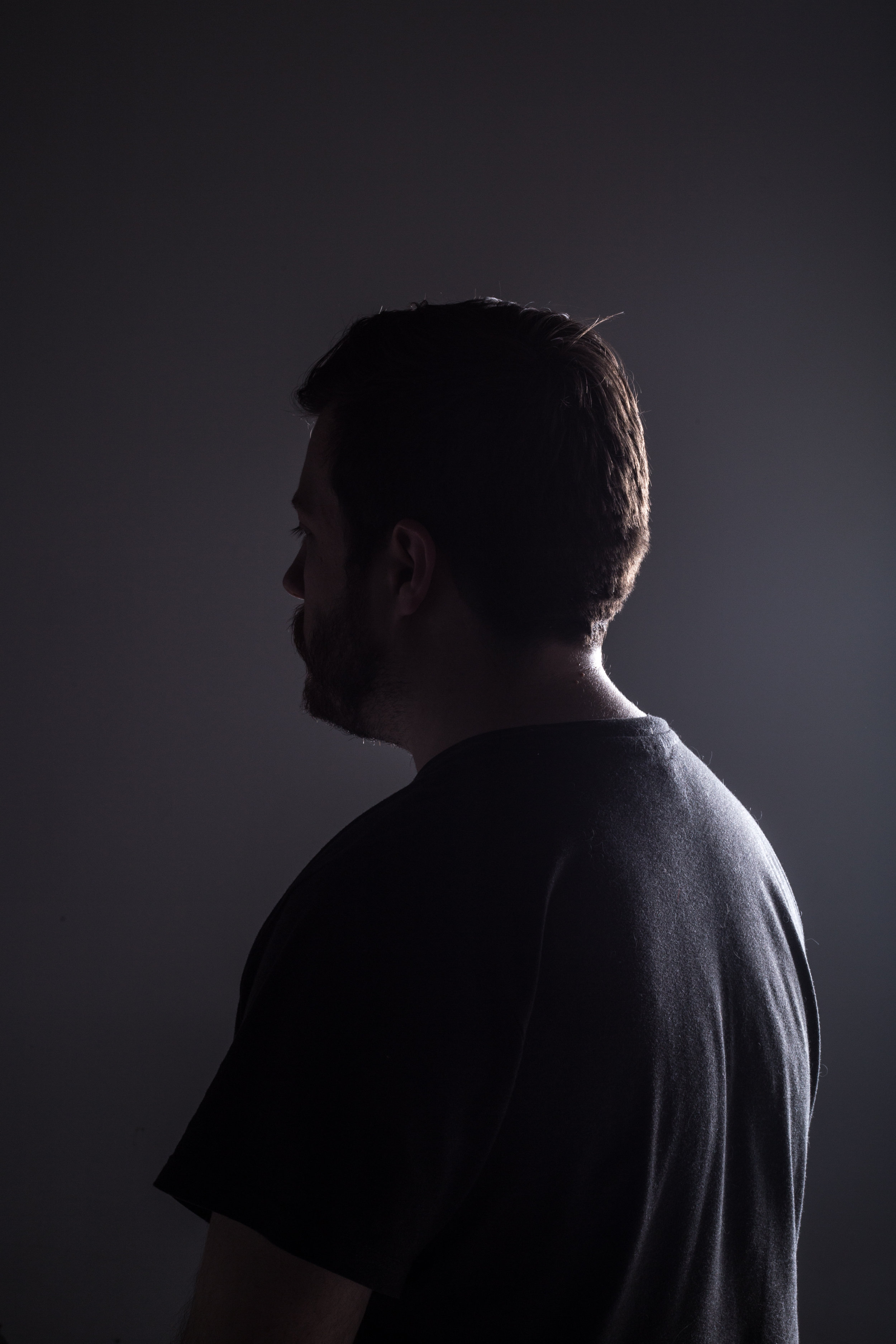Breaking the stigma of men’s mental health through pop culture
Liam McConnell MANAGING EDITOR
On September 27, Dr. Benjamin Rosen, a psychiatrist who specializes in men’s mental health at Mount Sinai Hospital, held a lecture and town hall at our campus entitled “The Crisis in Men’s Health.” During his lecture, he raised some frightening issues and statistics.
In Canada, one in five men experience mental illness of some kind — such as PTSD, anxiety, or eating disorders — which means that you likely know someone who is afflicted. Unfortunately, as Rosen points out, men often tend to suffer in silence. In fact, men are five times less likely to seek help for mental issues than their female counterparts, often due to the stigma surrounding mental health.
North American society has carved out an image of the quintessential ‘man’ that many of us strive, consciously or unconsciously, to live up to, often at the cost of our own health. This stereotypical ‘man’ is a self-sufficient and independent “lone wolf,” somehow able to “pick himself up by his bootstraps” instead of getting treatment. Not only is seeking help for mental issues considered weak or feminine — as if being compared to a woman is an insult — this ‘man’ will deny his suffering in the first place: even to himself.
The lack of treatment is not only a product of men’s attempts to live up to the societal expectations placed upon them. An idea persists in our culture that the men who are “outed” as sufferers of mental illness are violent, dangerous, or unpredictable. The truth, according to Rosen, is that the two don’t necessarily coincide. The diagram below is a recreation of one of the slides of his presentation.
Even though those who fit into the middle category make up a comparatively small portion of the population, men’s anxieties over being thought of as dangerous and unpredictable as a result of their illness perpetuates the stigma and prevents them from seeking help.
These are only two reasons why men tend to deny themselves treatment. The predominant notion is that mental health is something to be kept under wraps. “Talking about sports or work is a breeze for guys,” Rosen writes. “But most men keep their health worries private.”
The horrifying reality of the situation is that untreated mental illnesses can sometimes lead to disastrous consequences. 75% of all Canadian suicide victims are men. Suicide is the leading cause of death for males ages 10– 50. The problem is much, much worse among some Indigenous communities of this country, particularly in Nunavut.
One of Rosen’s main objectives as a mental health professional is to break these stigmas. Ultimately, one of the best ways is to “bring it out of the shadows,” as he puts it, to inform people with depression, anxiety, or other disorders that they aren’t alone. When men’s mental health is destigmatized, more men will feel more comfortable seeking treatment for disorders they are worried that they might have. Adding the topic of mental health to the national conversation is the best way to demonstrate that there’s no shame in being mentally unwell, sufferers are anything but alone, and there are people out there who harbour no judgment but simply wish to help.
It occurred to me that an effective way of spreading this message is through fair representation in popular culture: specifically, in television. If these programs are “thoughtful about how their characters are represented,” says Dr. Rosen, they can be valuable tools to spread awareness and dismantle stigma.
One of the most harrowing depictions of male depression in popular media comes to us by way of the Netflix original series created by Raphael Bob-Waksberg, BoJack Horseman. The titular character, voiced by Will Arnett, is a failing actor unable to regain the celebrity status afforded him by his turn on a 1990s sitcom, à la Full House. His lack of confidence as a major star fallen to relative obscurity combined with trauma left over from a rough childhood as a result of his irresponsible, unloving mother and abusive father, have afflicted him with a depression that manifests as self-destructive tendencies — including self-medication by way of alcohol abuse — and inconsiderate or even cruel behaviour directed at those around him, particularly at those he holds most dear.
However, he exists in a world in which humans and anthropomorphized animals live side by side. BoJack, as you may have guessed based on his last name, is decidedly unhuman: he’s a horse. That raises a particular issue. Dehumanizing the character also robs gravity from his situation. We can look at BoJack and his tortured mental state and separate his issues from the very same ones suffered by humans. This arbitrary difference in the species of the main character may be the only thing that makes this show enjoyable to watch as escapism. Without the constant stream of animal-based puns and general shenanigans, watching a man destroy his own life as he suffers from debilitating depression would just be too, well, depressing.
BoJack Horseman may be one of the most progressive shows on television — dealing as it does with issues of depression, alcoholism, feminism, and asexuality — and the fact remains that viewers are able to separate his real-to-life issues from reality, rather compartmentalizing them as the problems not of an adult male but of a cartoon horse. The entertainment our culture demands is reflective of the status of that culture’s collective consciousness. If our culture has still not progressed to a point where we can look at issues of mental health in the face — the human face — then we are not ready to band together to dismantle the stigma surrounding men’s mental health. But credit must be given where it is due. It may be a fault of our culture, not the show, that we cannot handle a human depiction of depression so starting. Perhaps BoJack Horseman has found a way to surreptitiously begin the conversation.
Ricky Gervais’ Netflix series Derek addresses the problem in a different way. The show itself is unusually sensitive, dealing with such issues as greed, kindness, the abandonment of elders, fulfillment, forgiveness, and ultimately death. I admit that the series one finale has moved me to tears multiple times.
However, the show’s approach to the issue of depression is misguided. A character named Kevin Twine, played by David Earl, is portrayed for the majority of the series as a lecherous, perverted slob who, like BoJack, self-medicates with alcohol. His alcoholism, a product of his mental illness and an attempt to run from his depression, is the cause for the other character’s general resentment of him. When asked the question, “Do you think you’ve had a good life?,” Kevin answers with one of the most heart- wrenching changes of tone in the series: “When I look back at my life, it’s been appalling. I’ve got my limbs, no problem there, but up there [pointing to his head] it’s been a war, since day one. No one would want be me. That’s what it feels like.”
The writers make it unequivocally clear that Kevin is severely depressed. However, the idea of his getting help never arises. Instead, his friends leave it to him to sort his own life out. The show does not acknowledge the possibility that, for some men — due to barriers of any kind such as financial, emotional, or the individualistic culture in which they’ve grown up which teaches them that help comes from within — finding help from without might be impossible. It’s a dangerous approach to mental illness of any kind, to assume that the sufferer holds the key to his own salvation and just doesn’t realize it.
One of the most ill-advised moments comes in the series finale when Kevin threatens suicide. Hannah, played by Kerry Godliman, immediately accuses him of “just looking for attention” and says that he’s “selfish” and “useless.” Anyone would agree these are dangerous messages to impart to any viewers that may see their own struggles reflected in Kevin’s.
The show eventually comes around, thankfully, when Kevin, thinking about his lifestyle, agrees that he’s been “selfish.” Hannah responds: “You’re not selfish… You’re just in pain.” When Kevin begins to come to terms with his illness, he says words that ring enormously, verifiably true: “It doesn’t matter what’s happening outside: it’s what’s happening in your head. It could be the best time in the history of the world, but if there’s something wrong up there [motioning to his head], you’ve had it. You can deaden the pain; drink and that. But you’ll never truly be happy.”
The creators of Derek couldn’t be more correct. However, the series ends by contradicting its own message. Kevin gives up drinking, which is a step in the right direction, but he does not address his depression: the root cause of his alcoholism.
Without a doubt, the most positive portrayal of a man struggling with depression and suicidal thoughts that I have seen in popular culture is not fictional. Comedian Chris Gethard, in his HBO special Career Suicide, straddles the line between comedy and tragedy as he bares his darkest inner feelings in front of a theatre full of strangers. Willfully inhabiting a persona that flies in the face of male stereotypes of toughness, Gethard is not afraid to be vulnerable as he tells his story, even succumbing to tears at several points. He addressed depression by name, and details his own suicide attempt, and the antidepressant medication that helps him through daily life. He even acknowledges his upbringing in suburban New Jersey, an area largely populated by men competing to find who is the most masculine, and that he never quite met those standards.
What’s more is that Gethard is abundantly clear that all of these things are okay: it’s okay to feel depressed; it’s okay to be vulnerable; it’s okay to cry; it’s okay to not feel or want to feel like a tough guy; and it’s even okay to feel suicidal, as long as you know it’s also okay to get the help you need. Gethard’s work is an invaluable resource in spreading awareness and destigmatizing male depression: essential to help more people find the treatment they need.
While the representation of male depression in the media is getting better all the time, bringing the fact that depression exists out of the shadows and into the public conversation, it’s clear that we still have a long way to go. Stigma surrounding men’s mental health is alive and well, and until we as a culture can stare the spectre of mental illness in the face and tell it we’re no longer afraid to speak its name, it always will be.
Now, it’s important to realize that the power to progenerate positive change is not limited to those in the entertainment industry. You — yes, you, with this newspaper in your hands — are capable of impacting the life of someone you know: man, woman, or otherwise. The answer could not be simpler: just talk to them. Go online to an accredited website and teach yourself case-specific ways of approaching someone that you think might be suffering from mental illness of some kind. It is not hyperbole to say it could literally help save their life.
If you or someone you know is suffering from a wellness issue of any kind, please be aware that the University of St. Michael’s College (USMC) has its very own Wellness Counsellor, right here on campus. Nicole LeBlanc has worked as a counsellor for people dealing with a range of life challenges, ranging from depression, anxiety, and relationship issues to severe mental health diagnoses and addictions. You can reach her by email at [email protected].





